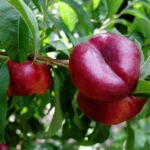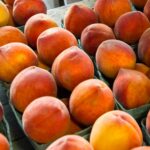Australia: Costa Group upbeat for 2019 despite profit dip

Australia's largest fruit and vegetable company, Costa Group, saw profits decline by 75% year-on-year in its first financial half but is expecting a strong performance in 2019 amid the development of numerous growth projects both domestically and internationally.
Profit for the six months to Dec. 30, excluding material items and amortisation, dropped from AUD$29 million to AUD$7.1 million, while revenue for the same period was down 2.3% at AUD$477.6 million.
It attributed the lower profits to factors including an off-year for citrus and a disappointing raspberry performance.
Its consolidation of Morocco-based African Blue and additional pre-harvest investments in China and Morocco also affected the period's financial results.
Expansion plans
Costa is currently undertaking various domestic expansion plans for its major categories - berries, citrus, avocados, mushrooms and tomatoes - as well as growth projects in China and Morocco.
The company has completed its 2018-19 Australian planting program of 47 hectares of berries, of which a little more than half are blueberries. In 2019 it expects higher volumes of its premium Arana blueberries, the introduction of long cane raspberry production aimed at smoothing the traditional summer peak, and the launch of a new blackberry product amid larger volumes of the Elvira and Victoria varieties.
In blueberries, Costa has been targeting the shoulder season and this year expects to see greater production driven by improved yield in Far North Queensland and incremental planted area in Western Australia. It says that 14 hectares of substrate plantings in Tasmania will contribute from 20020.
For citrus, in December 2018 Costa acquired Nangiloc Colignan Farms in northwestern Victoria for AUD$50 million, with the initial harvest from January exceeding expectations. The 567-hectare farm includes 240 hectares of citrus, 204 of table grapes, and 123 of wine grapes.
In its avocado business, Costa has been working on vertically integrating the segment and developing its Lovacado brand launched last year. It has also planted 26 new hectares in Far North Queensland and New South Wales, expects greater exports over the coming years and around a 10% boost in production on its own farms in 2019 as trees mature.
The company is also building a 10-hectare high-tech greenhouse in New South Wales for becoming specialty and snacking tomatoes.
Growth in Morocco and China
Internationally, the Moroccan blueberry footprint of African Blue - in which Costa holds a majority stake - is now 294 hectares, with a further 45 hectares to be planted in the first half of 2019. Its 2018-19 expansion program is focused on further early season planting in Agadir.
In addition, African Blue earlier this month opened a new 10,000-square-meter packhouse facility in Larache, making it the largest berry packing facility servicing the European market.
In China, Costa currently has 79 hectares of blueberries, 23 of raspberries and eight of blackberries. Its 2019 program entails 64 hectares at ManhHong, including raspberries and blueberries. Initial groundworks are underway for the 2020 program.
Costa says that its overall China rollout is tracking to the initial five-year plan, adding that market acceptance for blueberry remains strong with raspberry and blackberry undergoing further market development.
Outlook
Looking ahead, Costa says that "substantial progress" continues to be made for both the near- and long-term across the five core Australian categories with each presenting value accretive growth prospects. The international business unit has now also become a "significant earnings contributor".
During February, Costa said it experienced "solid price recovery" across its categories from the earlier challenging period.
At this early stage, the outlook for market, crop performance and weather conditions are "generally positive", and the company expects profit growth of at least 30% in 2019.
Costa has now transitioned to a calendar year reporting period which it says better reflects planning, revenue generation and reporting cycles.












































